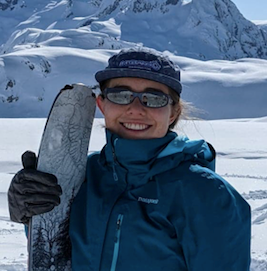Podcasts are produced by CERA faculty associate Darren Blakeborough.
Centre for Education and Research on Aging
Podcasts are produced by CERA faculty associate Darren Blakeborough.

As a Professor Emeritus at Toronto Metropolitan University and the past president of the Canadian Gerontological Nurses Association, Lori Schindel Martin has a wealth of experiences to share. Lori discusses her early journey and how that led her into the world of nursing, when she realized the power of conversations and stories to enhance traditional assessments, and actively working to disrupt some of the traditional narratives in gero nursing.

Lynn Jackson is a retired nurse, a tireless advocate for person centred dementia care, internationally recognized speaker on dementia as well as having the lived-experiences of having been diagnosed with dementia herself. Lynn discusses the research she has been involved with as well talking at length about how to increase awareness and to ensure more dementia friendly care.

In episode 8, Dr. Baumbusch is a professor and researcher at the University of British Columbia's School of Nursing as well as being the Canadian Institute of Health Research (CIHR) Sex & Gender Science Chair. In this chat with Shelley and Lillian, she discusses her journey into gerontological nursing, understanding the trauma that many are going through as they enter long term care, the importance of families in care delivery , and how nursing education needs to focus more on our aging population.

In episode 7, recent graduate, Prab Ganda, from the University of the Fraser Valley's Nursing program, discusses her experiences working in an Acute Care for the Elderly unit, dealing with staffing issues, and the importance of advocating for patients.

In episode 6, Lillian and Shelley speak with someone that is a friend and a colleague. Mariko Sakamoto is a post doctoral fellow with the Centre for Research on Personhood in Dementia. She is a registered nurse with a background in community health nursing. Her research is person-oriented, and focuses on the first-hand experiences of people living with dementia. Mariko discusses how she got into gero nursing, understanding the importance of person centred care, and how Participatory Action Research is giving a voice to persons with dementia which is helping to dispel some stigmas and affording them meaningful input into their own care.

In this episode, Shelley and Lillian talk with Joanne Brown. A graduate of the University of the Fraser Valley's Nursing Program, Joanne worked with older adults before returning to UFV where she is now an Associate Professor in the School of Nursing. Joanne discusses the importance of building relationships to truly understand the person behind the patient.

In this episode, Shelley and Lillian speak with an incredibly influential person in both their lives and their careers. Dr Alison Phinney is the co-Director of the Centre for Research on Personhood in Dementia at the University of British Columbia. Alison was also Lillian's and Shelley's PhD supervisor. She discusses her career trajectory, early experiences as a gero nurse, and the importance of research in better understanding the diverse aging population.

Our third episode sees Lillian and Shelley speaking with Karen Pickford. Karen shares with us how she got into gerontological nursing before discussing some of the issues working with older patients in the midst of the Covid-19 pandemic.

In our first "proper" episode of Gero Nurses, we talk with Ian Lee who takes us through his story of how he got into nursing, how that evolved into working with older patients, and what he sees as a gerontological nurse’s role in the future.

In this the inaugural episode, get to know the hosts Lillian Hung and Shelley Canning, their respective backgrounds, and what they want to achieve with this podcast.
NOTE: This podcast is a collaboration between CERA and GNABC (Gerontological Nurses Association of BC) with support from UFV's Research Office.

"It's cool to feel like I can see the window of nursing research and what it looks like. It can be more clinically based or really people-focused, but it kind of intersects because it is tying in sociology and other areas, but it’s still nursing."
Rosaley Klassen, Nursing